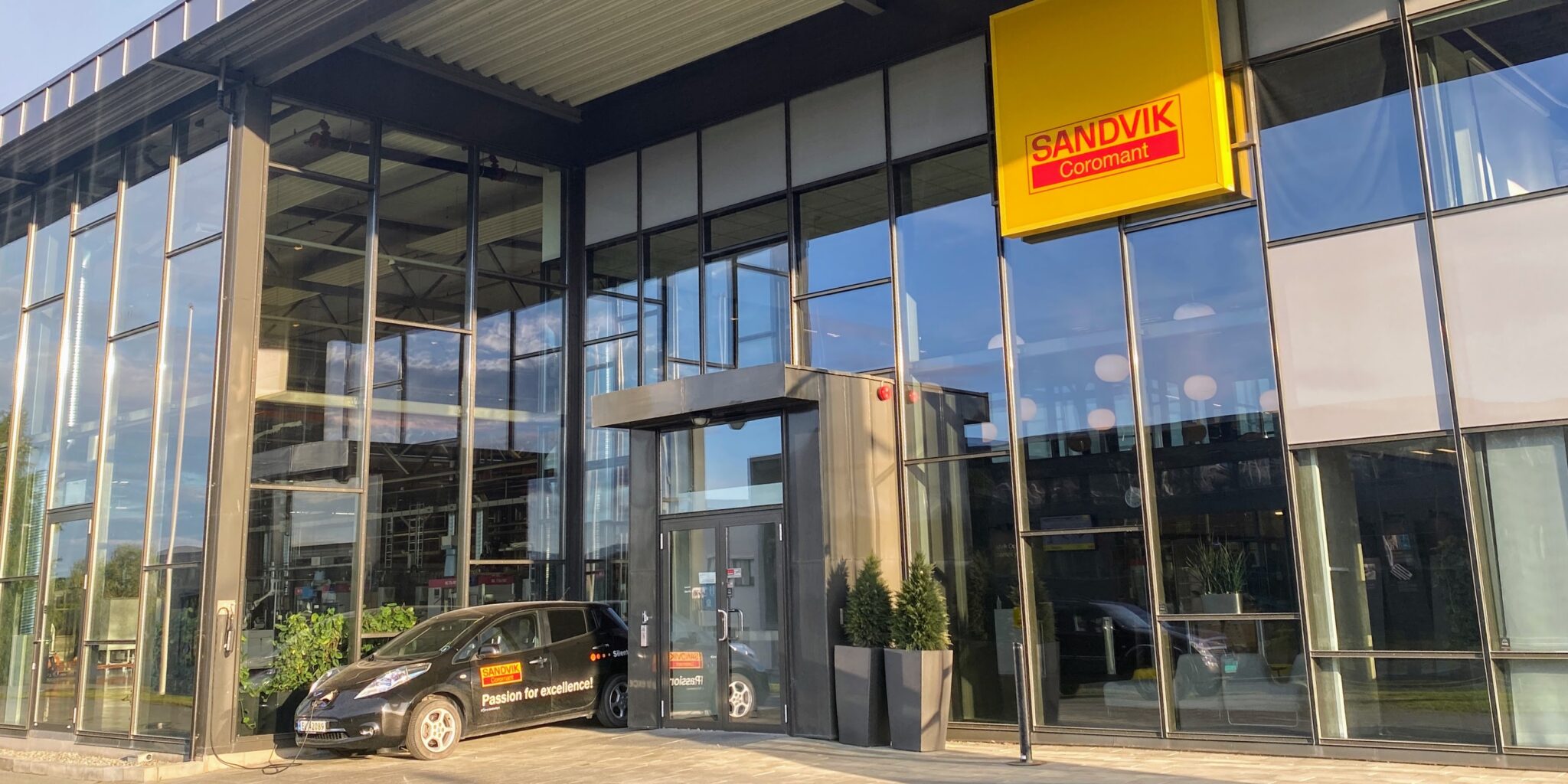
Lean helps us to fulfil our promise to customers
CASE STUDY – To bring consistency to the service provided to customers across their network of workshops, this Brazilian company has turned to Lean Thinking. Along the way, they found in it a different approach to leadership.
Words: Mariana Camilo de Oliveira
DPaschoal services vehicles and resell tires and other parts through its network of 125 shops across nine regions in Brazil. This is our core activity (in 2022, we serviced 318,000 vehicles and 41,000 trucks), but the group has other lines of business that include a fazenda growing coffee, a tech firm, and an eCommerce portal.
Our mantra, which reflects our commitment to the customer, is “measure and test before replacing”. It sounds obvious, but it isn’t necessarily: in Brazil, it is very common for car servicing companies to exploit the customer’s lack of technical understanding to trick them into replacing perfectly good parts. We don’t do that: if a customer shows up wanting to change their tires, but we see they can go another 5,000 km before they need to, we tell them. This is also part of our commitment to the environment.
The reason we decided to introduce Lean Thinking was that we realized we didn’t have a standard way of working across our network of workshops and stores. We wanted to standardize to provide customers with a speedier, more consistent service. That led us to redesign our service routine, a project that was led by Bruno Gomes, our then Operations Director, who had previous lean experience. Shortly after we started, the scope of the project grew, and we decided to also improve the store managers’ time management. That’s when we started working with Lean Institute Brasil, in September 2021. The team working on this project, of around 20 people, included the Operations Director, as well as regional managers and supervisors, and the leaders of a number of support functions that we considered strategic – marketing, IT, project management.
STARTING OFF
We started with the servicing routine. Using A3 Thinking, we analyzed the current state and process and simplified it. We devised two separate flows, for customers who show up with a clear problem and those presenting problems that need to be investigated. In truth, we implemented few changes: people realized that they were already doing what they were supposed to, but without enough discipline to follow the standard every time they execute. On their part, shop managers realized they had to be close by, to provide people with help whenever they needed it and to ensure the standard is followed. The role of leadership is critical in helping front-line staff understand why certain tasks and actions, like covering the client’s car while it’s being serviced (to avoid damage) or show the replaced part to the customer at the end of service, are important.
As the standard became clearer, people began to highlight more obstacles to the flow of the work – be them the unavailability of a spare part or the uniform people were expected to wear, which made them too hot to work comfortably. This wasn’t the initial objective of the project, but a welcome effect that we experienced. Those problems were known before, but we had no structured system to tackle them.
Equally important was the standardization of the managers’ day – for example, establishing a daily 15-minute meeting that the manager is expected to hold together with their team to stay on top of the work, discuss problems, and plan accordingly. That’s when we discovered the power of Daily Management, which, to solve the biggest problems they encountered, teams have leveraged in each of the three pilot projects we ran.
These took place in our stores in Pouso Alegre, Minas Gerais, in Osasco, São Paulo, and in Itajaì, Santa Catarina. Projects started with the introduction of 5S, as a way to better organize the workplace and identify those tasks that weren’t standardized. This has completely changed these shops, which are now clean and well-organized (this wasn’t in areas our customers see, but it was very important to do it to shape our culture and provide better working conditions to our people). Everything that isn’t needed was thrown away. Thanks to these changes, people started to pay more attention to their behaviors and their colleagues’ behaviors: they have started calling each other out whenever something is out of place or not clean. Carts were also reorganized, and all the tools that weren’t needed were put in a box and taken elsewhere. This helped our mechanics to work more quickly. We want all of the 2,500 people working at DPaschoal to be aware of the importance of working in a tidy, efficient and well-organized workplace, because we consider this a differentiator. We want to get to a point when all our 123 stores follow the same standards.
We also introduced Daily Management, which has helped us to make inroads in the improvement of our NPS and sales. This approach creates accountability and makes people responsible for the resolution of problems. As part of its implementation, we have introduced meetings at different levels to ensure communication travels seamlessly across the organization, up and down different layers of management. During these meetings, KPIs are tracked, performance is assessed, and problems are discussed. Around 150 between managers and supervisors have already been trained in the use of Daily Management boards and in the culture behind it, as we continue to develop our lean skills. We are currently working on standardizing the lowest level of meetings, between managers and front-line team, while trying to bring these ideas and practices to other areas of the organization, including administration (where of course we’ll use different KPIs).
By engaging our people in the lean work, we are seeing an improvement across all our KPIs. Indeed, shops are using the tools and practices of lean to tackle their specific problems. In the Pouso Alegre shop, for example, to improve NPS, the team started to engage with the customer before they leave the premises, asking them if they were attended well and if they have anything to complain about. If they do have a complaint, the team now addresses right away to try and ensure the customer leaves satisfied. It’s NPS before NPS, let’s say.
When it comes to problem solving, the shops rely extensively on problem/solution trees, which we tie to 5 Whys exercises. Each KPI we track in our Daily Management has its own tree, giving people a range of options to choose from when they are looking for ways to impact a KPI. The trees and 5 Whys are easier for people to grasp than A3s, which is why those are typically kept for centrally run projects rather than front-line ones.
Overall, this has been a very enriching experience for everyone involved. Being at the gemba, listening to people’s pain and problems, and helping them to sort them out is showing our teams that lean isn’t something we cooked up in HQ, but something that we want to continue developing together with them on the ground. It’s the only way to ensure it becomes the way DPaschoal works.
WHAT WE LEARNED
For lean to come to define the company’s mindset, however, we need the whole team to be engaged – including leadership. It’s great to see that our leaders are discovering their role in this transformation. It’s not enough to support change by introducing a routine once, perhaps during orientation, and expecting it to continue thriving on its own: leaders must talk to people about the new way of working, challenging them on standards and on what they see at the gemba during their genchi genbutsu exercises. Lean teaches us that capability development needs to happen continuously, and on the job.
We have also learned the importance of talking more about process than about results, lest our people misinterpret our priorities – a clear recipe for disaster, with people starting to cut corners to “make the numbers”.
Another lesson for us was the “big picture” view that, we realize, our people need to acquire. We are finding it super important to help them to understand their role in the generation of value for our customers, whether their job is actually customer-facing. This entails clarifying everyone’s roles and responsibilities and, for that, standards are again the key.
Earlier this year, we launched projects in three more shops and, in April, we launched Daily Management company-wide, with the idea of rolling it out to our entire network of stores (and even to the other businesses within the DPaschoal group). This will be our biggest challenge. To tackle it, we plan to take people on benchmarking visits to shops that have already achieved good results. There is no doubt, we will face some resistance at times – it’s too be expected in a network this big – but we are hoping we’ll be able to address it with the help of our regional leaders and even of the Operations Director. As leaders, they all understand they have to be ambassadors for Lean Thinking within the company, by being fully engaged in the transformation. It's not the first time DPaschoal runs a change initiative, but this time, with leadership engagement as the ingredient we didn’t have before, we’ll be able to achieve our goal.
THE AUTHOR

Read more


FICTION – In the second and final part of this story, the main characters discuss in front of a board. If you regularly use visual management, their conversation will resonate with you.


COLUMN – The author imagines an ideal, Jidoka-inspired response to the Coronavirus pandemic. This scenario might be utopian, but could it inform the definition of our True North?


INTERVIEW – Planet Lean talks with Drew Locher about bringing change to an office setting, lean in small- and medium-sized firms and why improving and managing go hand in hand.


CASE STUDY – A people-centric approach to work, improvement, and the adoption of automation is allowing this Norwegian company to thrive in a changing industry and environment.
Read more


FEATURE – You have never seen a workshop like this before: Halfway Ngami in Botswana has creatively transformed car servicing and repairs by making problems visible and introducing flow.


INTERVIEW - What does "leading through incompetence" mean? Peter Willats discusses the role of leadership in a lean management system and the evolution of lean thinking.


VIDEO - Visualization has an important role to play in creating awareness of the problems and highlighting gaps as a key starting point for improvement, and this Finance Manager does it with dedication.


FEATURE – For the first article in our series on the Halfway transformation, we asked the Sales team to tell us about how they apply lean to selling cars in a challenging social context.

